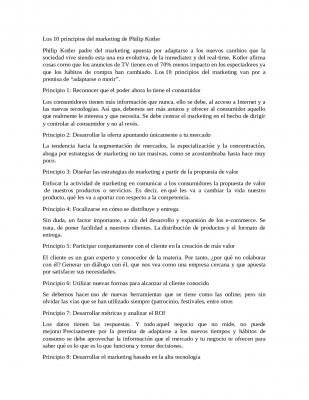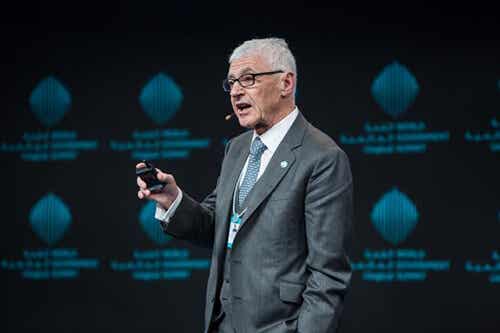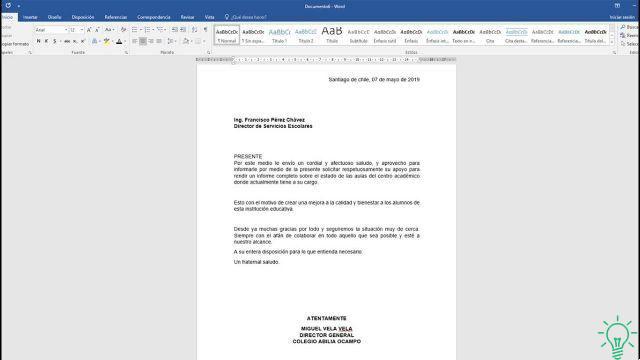Do you know the consequences of long-term unemployment? In this article we will try to identify them, focusing on those who are now cut off from the world of work.

Last update: 05 September, 2020
From the end of our studies and until retirement, we are dedicated to work. Working to live and, in part, living to work. Most companies don't see a person over 50, and even 45, and a young person with the same interest. If we take a look at the job offers on any portal, we will see that the profile requested, in a clear and explicit way, is young. As a result, seniors find themselves trapped in a situation of chronic unemployment.
As we will see, companies have various reasons for rejecting senior profiles. We do not intend to express a judgment on this, but we will try to analyze them. Are companies reflecting on the psychological consequences of this state of chronic unemployment? We talk about it in this article.
"Circumstances are so complicated lately that having a job is truly a blessing."
-Jorge Bucay-
Chronic Unemployment: Why Don't Companies Want Seniors?
The first thing to ask is: is a person over 40-50 less able to work? Have you lost the ability to work, learn or update? Do you have less knowledge of a field in which, perhaps, you have worked for so many years? Or have I lost capacity and efficiency? Are you less responsible than a young person?
You have probably answered no to all, or most, of the questions. Except for specific cases requiring physical strength or agility, cases of illness or cognitive impairment, a person of 40-50 years is perfectly capable of working.
The companies, however, declare that they have valid reasons not to hire. In the latest survey conducted by the Adecco Foundation, 200 human resources employees were asked why older profiles are discarded. Here are some answers:
- 75% think it is not convenient to hire senior profiles because i health problems could lead to more absenteeism.
- 66% think they would find it difficult to fit into a young team and above all they would not gladly accept the leadership of a younger person.
- 40% believe they will be less flexible.
- According to 25%, their knowledge and skills tend to be out of date. Seniors are believed to be obsolete, not flexible, reluctant to acquire new knowledge or to learn new procedures.
- Family responsibilities do not allow for mobility.
- A bigger person gives a worse corporate image. A young man gives the company a fresh, innovative and flexible air.
- They don't accept low salaries because they have experience and companies want to reduce expenses. This is the most common reason.
Debunking ... irrational beliefs?
The main problem is the so-called generalization or hypergeneralization. There are probably profiles with over 25 years of experience who will not accept the same salary as a person who has only two behind them. It has its own logic. But there will be others who out of desperation or out of "love of art" will be willing to accept it. So why not try asking, before assuming they will refuse?
The same goes for the other points. There will be many candidates who are not interested in continuing their training, because they believe they have learned everything on the ground.
Other professionals stay up to date for their entire working life, continuing to attend courses, conferences or even enriching the curriculum with other degrees or masters. As professionals, they need to be able to adapt to changes if an improvement in business efficiency depends on it.
As for family commitments, it is an understatement to think that all people of a certain age have a dependent family or that family responsibilities should interfere with work. And it is equally simplistic to think that after a certain age you have health problems. It is true that they are more frequent over the years, but even a young person could have chronic or past problems.
Compared to the inability to adapt to a young group, a senior may be comfortable with a younger manager because in this way they can take advantage of their "freshness" and learn. In the end, we can learn from everyone.
Don't you think that the fear may instead be of the younger person? Who may ask "what do I have to teach?" or "how can I be his boss if until two years ago he was the director of a multinational?". It would not be unreasonable to think so.
People with more years are the image of professionalism
Isn't having a professional in your workforce a good thing? It is certainly important appear an open company, demonstrating that it is possible to combine junior and senior profiles, and get the best out of this combination.
But the beliefs seen in the previous paragraph are so ingrained and generalized that Curriculum vitae are discarded on the basis of the date of birth. Companies are unable to reflect on the advantages offered by an older and more experienced profile. The result is chronic unemployment.
Psychological consequences of chronic unemployment
Let's try to put ourselves in the shoes of a person who has been rejected by over 300 jobs, with four years of unemployment, school-age children and a partner in the same situation. Just thinking about it makes you anxious, doesn't it? Between the psychological consequences of long-term unemployment we can find:
- Anxiety and stress which derive not only from not finding work, but also from the impossibility of facing elementary expenses: water, electricity, food, accommodation, school for the children, etc.
- Low self-esteem, feelings of ineffectiveness and even depression. Not feeling skilled for any job can lead to rethinking your entire career, and whether you are truly able to work.
- Sense of guilt: despite being victims, it is impossible to get out of the pit of despair.
- Physiological disorders such as changes in appetite and insomnia.
- Feeling of helplessness. Conviction that the situation is irreversible.
If these emotional disturbances last over time and interfere with daily life, it is necessary to receive professional psychological support.
The practitioner will not give the pill that solves all problems, but he can definitely show some useful guidelines for maintaining a healthy routine, free from guilt and helplessness and face the delicate situation in a healthy way.
We protect seniors: they have a lot to teach
WHO places age discrimination (ageism) on the same level as racial discrimination or sexual. At the same time, it recognizes that this is the most normalized form of discrimination.
You have probably seen more than one slogan about the merits of mature people, it is sad that there is a need for it, yet it is so. It is imperative that someone remind us that senior talents have a lot to teach to the chicks that have just opened up to the world of work. And also to those who are no longer a chick.
If we saw the human being for what he is, and not as a set of data, perhaps the world would be a little different. Companies, think again, you are missing out on talent.

























